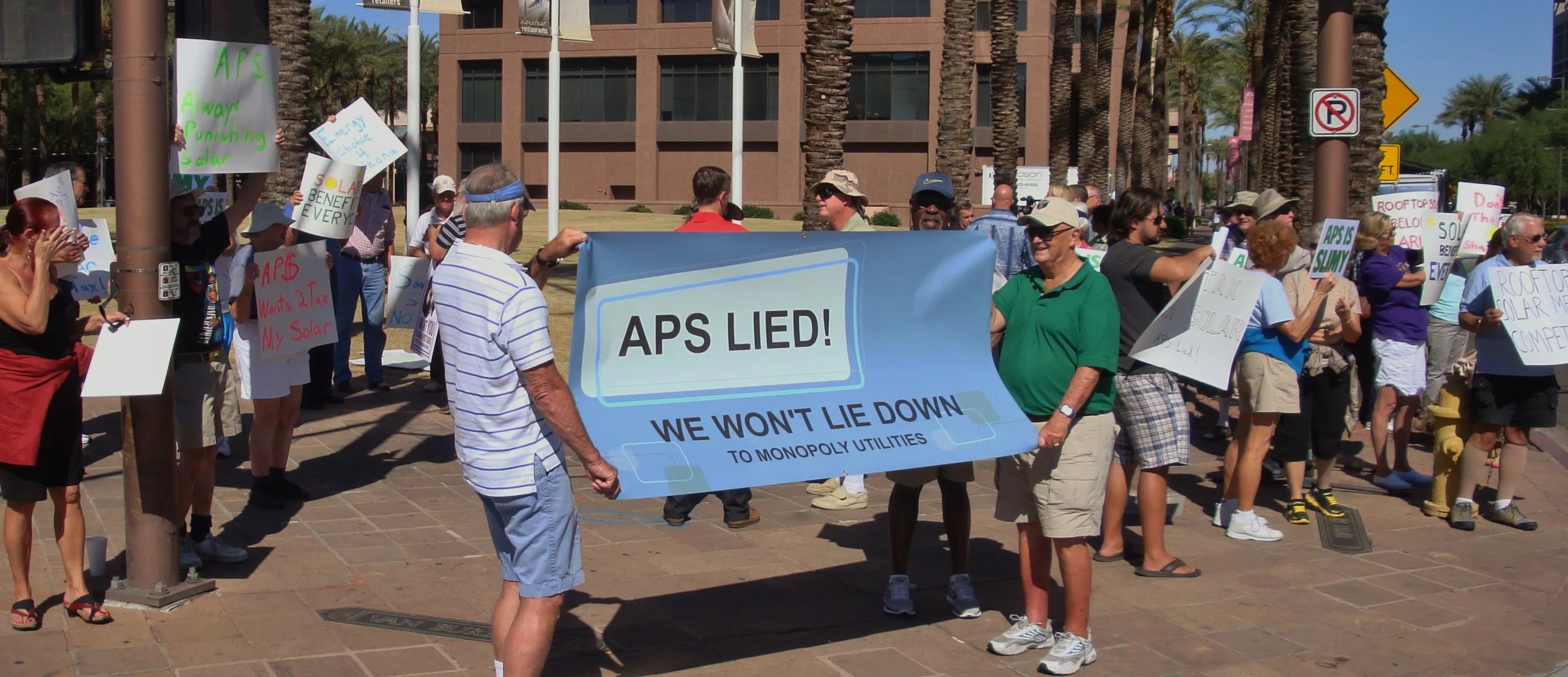

Audio By Carbonatix
From 2013 to 2018, Arizona Public Service and parent company Pinnacle West poured at least $130 million into political spending, charitable contributions, marketing and advertising, lobbying, and sponsorships.
None of that money came from customers, APS claimed, as it submitted spending records to the Arizona Corporation Commission on two successive Friday afternoons, most recently on April 5.
“When the company participates in the political process, all engagement occurs through Pinnacle West and is funded through Pinnacle West earnings, not through APS customer rates,” Barbara Lockwood, APS’ vice president of regulation, told the Commission in a March 29 letter. It was the utility’s first response to demands from Commissioners Sandra Kennedy, Bob Burns, and Boyd Dunn to provide records of its political participation and spending.
Experts say it’s impossible that the money didn’t originate from APS customers, and that such sourcing could have legal ramifications for the utility.
“Virtually every single dime that winds up in Pinnacle West’s coffers comes directly from APS ratepayers,” said Kris Mayes, a former Corporation Commissioner from 2003 to 2010 who is now a professor at Arizona State University. “It is a complete and total fiction that this money didn’t come from ratepayers.”
APS is a wholly owned subsidiary of Pinnacle West, a public holding company. Although it owns three other subsidiaries, it “derive[s] essentially all of [its] revenues and earnings” from APS, Pinnacle West’s latest annual 10-K to the Securities and Exchange Commission says.
With about 1.2 million customers, APS is Arizona’s largest electricity provider. Retail customers comprise about 95 percent of its total operating revenues, the company states in public filings.
“The key is that Pinnacle West only has one asset that creates revenue for the company, and that’s APS,” said Court Rich, a senior partner at Rose Law Group. “We all know where that money comes from.”
Yet somehow, when APS spends money on lobbying, politics, or marketing, it swears the money comes from Pinnacle West, and not from APS customers.
Here’s APS’s logic: The revenue it collects is what customers pay on their bills. The difference between that incoming money and the expense of operating its business, which is providing electricity, are the profits, which go to the shareholders of Pinnacle West.
“It is these profits that fund philanthropy, marketing, and political participation,” Suzanne Trevino, a spokesperson for the company, wrote in an email. When APS files rate reviews with the Corporation Commission, she explained, it lays out how much it plans to charge customers in order to cover costs and earn a rate of return.
“We do not submit our spending philanthropy or political participation as costs to be recovered in rates,” Trevino added.
APS is on the hook for its political spending in recent election cycles because of requests from the three Arizona Corporation Commissioners in February and March for information on its political spending.
Its recently disclosed documents confirmed what many had long suspected – that APS was the source of millions in dark-money funding in the 2014 election cycle, including to elect its preferred candidates.
But they also offered fresh glimpses into the sausage-making of APS’ political participation and strategy, and the sheer scope of its efforts. Those records documented APS’ financial support for candidates who supported the utility’s interests, including its opposition to net metering and rooftop solar energy, and its countering of candidates who supported those initiatives.
The issues of where APS’ money comes from and how those funds are used could prove critical.
Customers are the wellspring of the revenues that ultimately fund its political expenses, charitable contributions, lobbying expenditures, and marketing and advertising, but because APS is a regulated monopoly, customers don’t have a say in how their dollars end up being used.
As Rich pointed out, the U.S. Supreme Court ruled in 2018 that government workers who don’t join unions may not be required to pay for collective bargaining because, the justices said, doing so would violate their First Amendment rights. It would force nonmembers to support unions’ political messaging that they might disagree with.
The APS situation is different from unions and members but has parallel principles.
“These documents show that APS’ customers have been forced to fund tens of millions of dollars of political speech that they might disagree with,” Rich said. “It’s certainly worth asking the question if utility ratepayers should be compelled to support political speech going forward.”